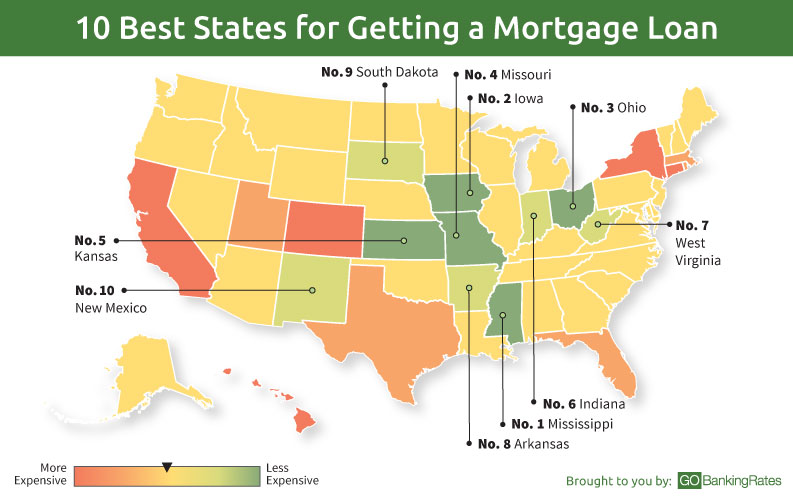
Image source: https://www.taxaudit.com/Content/Images/US_ADsamplenotices/IRS-Audit-Notice-10-1.png
A couple years ago the Milwaukee Journal Sentinel ran a story about Rapid Refunds entitled Poor Workers Got Fast Cash at High Prices. I was really shaken by the following.
"Nearly $2 billion in tax credits earmarked for low-income workers instead went to businesses that offer high-interest loans against pending tax refunds [Rapid Refund], according to a new study by the Brookings Institution and the Progressive Policy Institute.... Fees on those loans amount to annual percentage rates of 67% to 774%, according to a recent report by the Consumer Federation of America and the National Consumer Law Center."
Rapid Refund
Another name for Rapid Refund is Refund Anticipation Loans or RAL. Assuming you are using a Rapid Refund tax-preparing agency, It is very standard to be asked if you want a Rapid Refund. So automatic is this pattern that the rest of the sentence is often not even needed included- just simply, "Rapid Refund?"
I know I have heard it. This was just before I politely said, "Thanks, but no thanks." There is no discussion on the cost of the Rapid Refund, what the Rapid Refund interest rate is, or even the fact that you could get the same money without a Rapid Refund in as little as 9 days. You don't even see the Truth In Lending statement until after signing the agreement. It is all so automatic.... And oh so lucrative.
I read someplace that a former H&R Block employee reported that folks would come in at the end of December or first week of January with nothing but their last pay stub. Forget the W-2. That's too slow. Just "Gotta get that Rapid Refund." What's wrong with this picture?
Worse Than Loan Sharking
A while ago I wrote an article called Worse Than Loan Sharking. The introductory paragraphs said:
"Loan-sharking" equates to usury, which is charging interest above an established legal rate. "Pay Advance", "Check Advance", "Deferred Deposit" or any other label like it is lower than loan-sharking. It is a legal, multi-billion dollar industry that you don't want to get lured into....
As a young GI in Korea years ago, I remember none of us had much money. Gambling and "other pastimes" took the little we had before month's end. But there were always the "friendly", black-market loan sharks offering 50% interest loans. Guess who was always 5 feet away from the pay station on pay day?"
There is little difference in stories between the article above and Rapid Refund articles such as this or in "Rapid Refund Scam" at the site Eat the State. In this latter article, a report about one company said:
"Thus a taxpayer with a $600 refund would pay about $75 in finance charges, plus $50 in tax prep fees (for the simplest return) just to get a check for only $475 nine days sooner. The annualized interest rate would be about 450%!"
Here is a thought: What happens if IRS disallows deductions and your refund is reduced? You still owe the loan plus interest. But now you are even further in the hole because your RAL is less than anticipated.
Where Is The Benefit To RAL?
The IRS will usually send out refund checks in an average of 21-45 days. If you need the money sooner, electronic filing should get your refund check to you in less than 21 days. If you choose to have your refund deposited directly into your bank account, it can be done in 8 days or possibly less.
Consumer Federation of America once had a comment about Rapid Refund that I always felt appropriate. They said: "Don't spend your money to borrow your money to have it a week or two faster."
Black Market Opportunities
In preparing this article I did a key word search on "check advance". I stumbled upon a great title called, "Job Opportunities in the Black Market". In it was the following:
"Sadly, the only industry that makes credit card companies look friendly is the pawn-shops and check cashing services industry. Just like lottery tickets (tax for the poor), these businesses thrive in economically repressed areas."
It would seem Rapid Refund operations fit right in.
Dealing With The IRS
On occasion you may have to deal with the IRS. It may be as simple as a notice that you did not sign your tax form or maybe more complicated as with an audit. In any case some ground rules should first be established within your own mind.
1. IRS folks are people also. Some are motivated and some are not. Some are sharper than others. Some have more experience than others. On any given day some will be in a good mood and some will not. IRS deals with millions of phone calls and letters annually. They often must deal with antiquated computers and angry consumers. Most are their to do a good job and assisting you as best they can to meet your tax burden is part of their job.
Though still subject to error, the IRS is methodical. Sometimes this translates into what the consumer sees as slow. But the IRS is definitely methodical and will eventually right any wrongs.
Therefore the first two cardinal rules when dealing with the IRS are:
a. Regardless of the reason to be in contact, treat the IRS as people. Give them the same dignity and respect you deserve and that anyone else deserves.
b. File on time.... even if you do not have the money. This puts you on a much firmer basis than contacting them when you have not even filed. You might be interested to know that the IRS has six years from the due date of the unfilled to file criminal charges against you.
2. If you cannot pay your taxes, you can request a payment plan for up to 36 months. You will pay interest but far less than paying by most credit cards. The collection arm of the IRS that you will deal with in repayment is the Automatic Collection System (ACS). You should be contacting them before they contact you. But do not ignore a letter or contact from the ACS and be likeable when dealing with them. It is definitely to your advantage! When requesting payments insure you have your assets and liability and suggested repayment plan in mind or it will be a waste of everyone's time.
The tax audit time limit is 3 years from the original filing unless you have underestimated your tax liability by more than 25%. In this case it is 6 years. Audits are usually conducted because of an irregularity on your return such as excessive expenses for your income, excessive improper deductions or exemptions or a specifically targeted group by the IRS. There is also the chance of random selection.
The IRS has a very long reach and can check records from numerous sources such as employers, relatives, former spouses, friends, government agencies, financial institutions, etc. Therefore, do not lie but at the same time do not volunteer information. And always, always, always, abide by the rule above.... treat the IRS as people. Give them the same dignity and respect you deserve and that anyone else deserves.
Some time after the audit you will receive the results by mail. You have the option of appealing the audit, which could take up to a year to hear. Meanwhile any additional tax burden will accrue interest. An appeals officer of the IRS will hear your appeal. You will present your facts as to why you feel the audit is in error. If this appeal fails you can either fight the findings in tax court or negotiate a settlement.
3. Key Terms - Often times knowing what to ask for can be half the battle in talking to the IRS. Here are a few key terms which may help.
Penalty Abatement -. Abatement is the elimination or reduction of tax penalties and can be for any reason. In order to apply for penalty abatement, write a letter to the local IRS service center with justifiable reasons why your tax burden is not correct or the reasons surrounding your need for abatement. Send a second letter if there is no response within 60 days.
Tax Liens and Levies - are two methods of tax claim enforcement by the IRS. A tax lien is filed at the local county recorder so that you cannot sell your home or even borrow against it without first paying the lien. The lien statute of limitations is 10 years. As bad as a tax lien is, it is nothing compared to a tax levy. A levy is seizure of your property other than wages (which is garnishment). The property can then be sold within 45 days. Certain properties such as some furniture, tools, etc. is exempt from levy.
Offer In Compromise (OIC) - An Offer in Compromise is essentially a negotiation or settlement for less than what is owed. In the case of an OIC it may be wise to utilize a tax professional as there is much to be gained in doing this correctly. The key is to offer more than what the IRS would get from a levy. Part of the OIC also is how much you could pay the IRS monthly over the next 5 years.
Bankruptcy and Tax Court - There is one other point often times misunderstood about taxes. Tax burden on occasion can be discharged under chapter 7 bankruptcy. If the filing occurred on time but 2 years before the bankruptcy, the tax debt is over 3 years old, and the debtor is not a tax protestor, discharge may be possible. However tax liens cannot be so discharged. If you file and IRS has placed a lien against your property, though the debt is technically discharged, the lien will continue.
The final tax option after an audit and an attempted OIC is Tax Court. Half of all cases appearing in tax court result in lowering the tax burden. On the other hand interest accrues while waiting for the entire process to take place. Tax court is applied for at your local IRS service center and like any other dealing with the IRS requires form to be filled out.








